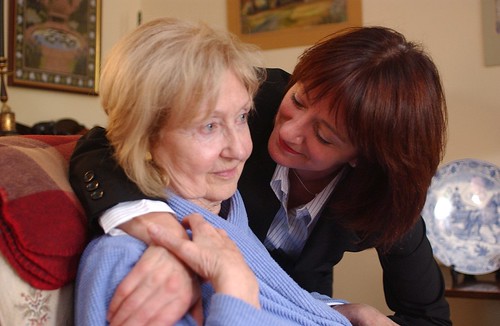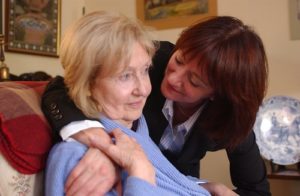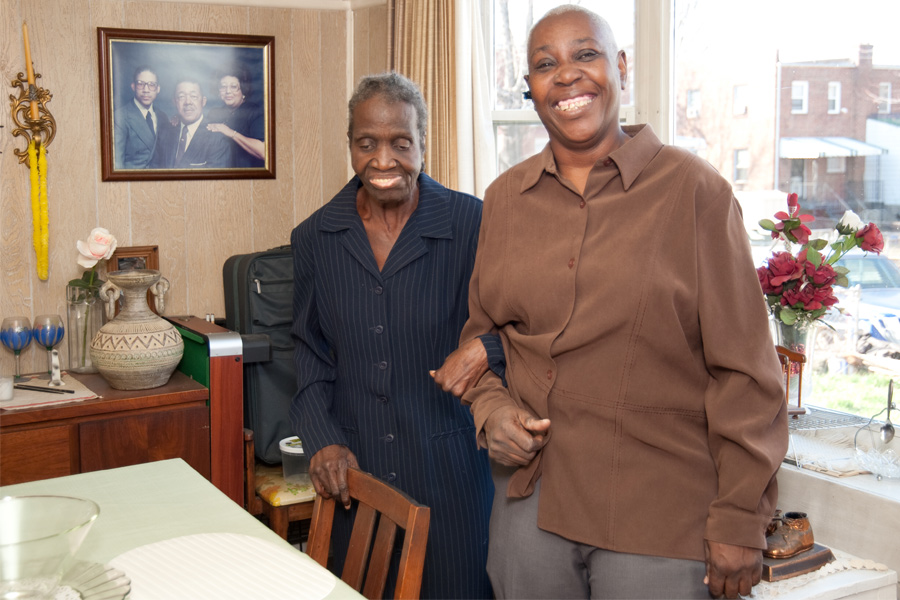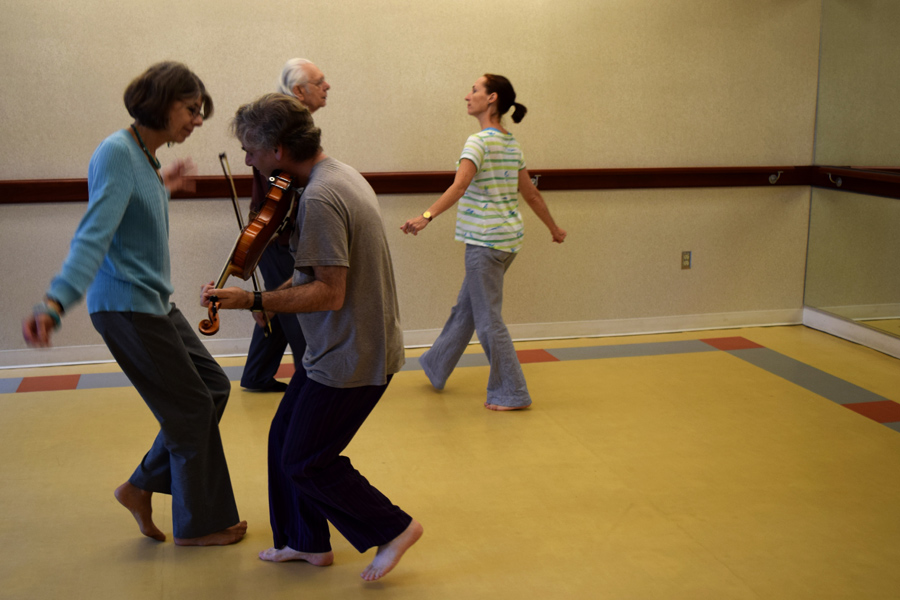What to Expect When Interacting with Someone Who Has Dementia


Developing dementia or other memory loss issues can take a great toll on a person’s mood and outlook. At Iona, we see and speak with people experiencing these challenges regularly.
We understand that many family members are also unexpectedly thrown into managing a family member or loved one’s diagnosis, oftentimes with a great deal of mixed emotions and expectations. Oftentimes, these expectations can work against you.
If this is your experience, you are not alone. To help you better communicate and care for people with dementia, we’re sharing some common dos and don’ts for how to respond.
Use this list to help manage your expectations and understand the effects of this disease.
People with dementia experience:
A range of moods and behaviors.
The person with dementia can go from being happy and engaged, to being sad or anxious and withdrawn seemingly suddenly. They might experience restlessness, and as a result, begin to rummage, pace, or disengage from activities or receiving care. These factors can also be affected by the following: stage of condition, personality, surrounding environment, medical challenges, level of independence, and level of trauma. The number one expectation you should have is to not have any hard or engraved expectations at all. This disease brings about unpredictable behaviors and every case is different.
Feeling agitated and anxious in the late afternoon and evening.
Therefore, it is best to plan activities in the morning or early afternoon.
Difficulty remembering who their friends and loved ones are.
It’s possible that over time, they may forget your name or your relationship to them. But it’s very likely that they will remember how you treat them. For example, they will remember your kindness.
Feeling overwhelmed.
How you communicate with the person can make the difference. Speak in a calm and reassuring tone, and avoid shouting. To help avoid distractions, keep background noise low. Communicating through gentle touching can also be soothing and assuring for persons with dementia.
Becoming easily startled.
When you first interact with the person, approach them from the front to avoid startling them, smile (as much as possible), and address them by name.
Trouble communicating clearly and being understood by others when speaking.
Pay attention to the person’s body language and non-verbal cues, which can be their way of communicating with you. As the disease progresses, you may also have to adapt how you communicate with them. For instance, you might use short and simple statements or questions, or ask questions with “yes” or “no” responses. You can also break tasks down into multiple steps and give instructions one step at a time or make requests one at a time.
Repeat questions and statements multiple times, or forget people, dates, and words.
Although dealing with this regularly can be taxing and frustrating, it’s important to communicate as patiently, and as calmly as possible. Instead of saying, “You already said that,” respond as if you’re hearing it for the first time. You can also shift gears by responding with a nod to what they said and then change the subject.
Challenges with exercising their independence.
Most people diagnosed with dementia are used to living independently. With this in mind, frame questions and instructions in a positive way that reaffirms their agency. For example, instead of instructing a person with dementia to do something, use the “let’s do it” or “you can do it” approach. For example, avoid saying, “Get dressed.” Instead say, “Let’s get ready for the day and get dressed.” It’s also important to avoid talking down to them and using “baby talk.”
Do you have other tips or advice for communicating with someone with dementia?
Let us know in the comments what you have learned and found helpful through your caregiving journey.
Related Articles

The Stories of Dementia in the District

A Couple’s Vows Create Opportunities to Age Well

Can You Imagine Taking Three Buses to Get to Iona?

